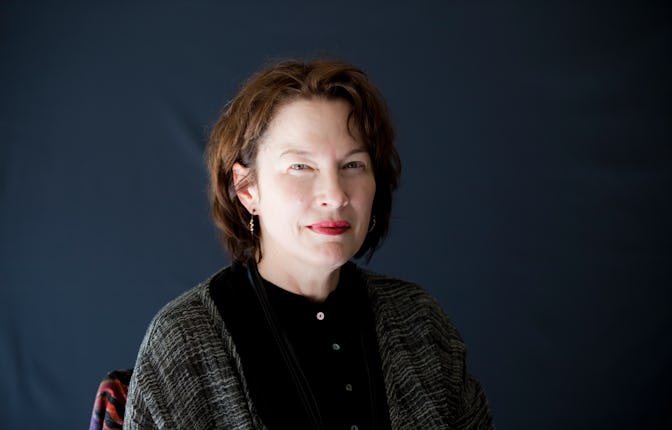Alice Sebold apologized to the man unjustly jailed for her 1981 rape. But is it enough?
The 'Lovely Bones' author and Anthony Broadwater must both reckon with the failures of justice in this case.

Alice Sebold mined her own pain to write her 1999 debut memoir Lucky. The book focused on Sebold’s rape in 1981 as a freshman at Syracuse University. But the man convicted of the crime in 1982, Anthony Broadwater, was exonerated a week ago on November 22, and there is a much more complex web of pain now woven into what was already a tragedy.
Sebold also wrote The Lovely Bones, which was the biggest selling book of the year in 2002 — a rare occurrence for a first-time fiction author at the time — which was turned into a feature film in 2009 starring Saoirse Ronan. The author, having made a career out of dark stories both fiction and nonfiction, must now face perhaps the darkest story of all: that she misidentified an innocent man who was then jailed for 16 years and haunted by the conviction for four decades.
Sebold took to her Medium page yesterday to publicly apologize to Mr. Broadwater first stating, “I am sorry most of all for the fact that the life you could have led was unjustly robbed from you, and I know that no apology can change what happened to you and never will.” She continued, “40 years ago, as a traumatized 18-year-old rape victim, I chose to put my faith in the American legal system. My goal in 1982 was justice — not to perpetuate injustice. And certainly not to forever, and irreparably, alter a young man’s life by the very crime that had altered mine.”
Sebold is facing quite a bit of backlash seeing as her massive success, and wealth, has been largely built off of the initial crime that saw Broadwater’s life decimated. At the time of his arrest, the 20-year-old Broadwater had just returned home to Syracuse from serving in the Marine Corps after finding out his father was ill. His father passed away shortly after his conviction, the New York Times reported. Broadwater was registered as a sex offender upon his release in 1999 — ironically the same year Lucky was released — after which he has worked in sanitation and as a handyman. He recounted the stigma he endured: “On my two hands, I can count the people that allowed me to grace their homes and dinners, and I don’t get past 10. That’s very traumatic to me.”
It is important to point out that while Sebold did misidentify Broadwater and testify to his guilt, she was still a young, traumatized rape victim. What happened to both Sebold and Broadwater is heinous. And yet, it’s crucial to underline the racist miscarriage of justice that occurred during the 1981 police case and subsequent trial. A young Sebold was encouraged by, and played into a racially motivated man hunt by the police that is both indicative of the inherently unjust American legal system, and also how many other innocent black people are in jail because of the way this system has carried on for years. A white woman was raped by a black man, and police at the time were determined to see a black man go to jail for it — even if he was innocent. Sebold did not stand in their way.
What is perhaps most damning to Sebold’s place in the story, is that it was not her own conscience that led to a reconsideration of Broadwater’s guilt — who has always maintained his innocence — but a movie producer who was working on pre-production to turn Lucky into a movie. Broadwater was convicted despite not being seen in the area of the crime until months after it occurred, Sebold identifying a different man in a lineup (who looked “almost identical” as she wrote in Lucky), and antiquated hair analysis techniques that have been since deemed by the Justice Department and the FBI as almost completely inaccurate by modern science, having led to multiple false convictions and executions.
Executive producer Tim Mucciante became suspicious when the script version of Lucky and the book didn’t completely match. “I started having some doubts, not about the story that Alice told about her assault, which was tragic, but the second part of her book about the trial, which didn’t hang together,” he said. He left the project and hired private investigator Dan Myers, who eventually started working with Mr. Broadwater’s lawyers, ultimately leading to his exoneration. Via his lawyers, Mr. Broadwater said that he “is relieved that [Sebold] apologized...It must have taken a lot of courage for her to do that. It’s still painful to me because I was wrongfully convicted, but this will help me in my process to come to peace with what happened.” The film adaptation of Lucky has lost its funding, as per Variety, and Victoria Pedretti has dropped out as its star. People online are calling for Sebold to monetarily compensate Broadwater, especially after it took her eight days to even release her statement. Scribner told The Guardian that it has no plans to update the text of Lucky to reflect these revelations.